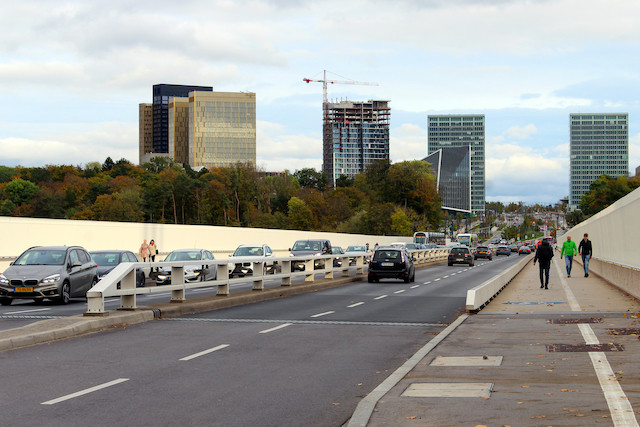Here’s a snapshot at how far each of them have to travel for their commute, including locations of where they reside and work, and their thoughts on the upcoming changes. Only first names have been used at the request of the individuals. Note that only first names have been used at the request of the individuals.
Tonya, mother of 2
Commute: Metz to Neudorf
Tonya normally takes the train for her morning and evening commutes. When she drives, she has to leave Metz just after 6am “in order to spend less than two hours in traffic”. Those journeys take 45 minutes if she sticks to her timetable--including if she leaves work by 3pm.
Whenever possible, she opts for public transport since “traffic is so awful” with the car, although she does drive into Luxembourg if she needs her car for work.
She estimates she spends around €90 for the train per month, and about €25 for the bus with a yearly pass and, while she sees improvements to the grand duchy’s public transport system, “free public transportation will not change anything for me. It’s just nice to have.” But, like other cross-border commuters, she believes it’s critical authorities find a better way to improve train connections across different countries and better options for cross-border workers to leave their cars outside the city.
Total distance, one way: 65km
Average duration: 45 minutes-2 hours
James, bachelor
Commute: Luxembourg City (Rosegarden) to Kirchberg
James is a 40-year-old bachelor who, for his morning commute, tends to walk to Hamilius which he is “not very happy about” and then takes the bus to work. His commute will be alleviated a bit once this segment of the tram line is complete. In the evening, he takes either the tram and bus or just the bus, although in warmer weather, he likes to use the Veloh!. Depending on roadworks and traffic, his commute tends to take around 30 minutes--“too long”. Within the city, he normally resorts to public transport or cycling, but he uses a car for journeys further afield.
James admits he doesn’t pay for most bus journeys currently (although he does pay his train fares), so free public transport will make “no difference whatsoever” from his point of view. His opinion is that there are both underserved and overserved areas when it comes to public transport and says authorities “need to sort out Kirchberg and Cloche d’Or--[there’s] too much traffic and it will only get worse.” He wishes the tram had been implemented in one stage because it is causing too much disruption, and he would be on board with an extension of the Veloh! network.
Total distance, one way: 5km
Average duration: 30 minutes
Daniel, father of 2
Commute: Kehlen to Cloche d’Or via Mamer
Daniel says it takes about an hour for his morning commute from Kehlen to Cloche d’Or, where he works--including the school drop-off. The duration is about the same for the evening run back home. Traffic isn’t limited to the roads, however; he also has to negotiate getting out of the school car park, often the result of bottlenecks on the road ahead. If his wife does the school run (and weather is decent), he cycles to work but, as his children are still quite young, he has “no choice but to drive them to school”. On weekends or for city visits, he occasionally uses public transport and is generally fine with the bus route from Kehlen, although he is looking forward to the Hamilius-Place de l’Étoile tramline being finished. The family takes the funicular and tram combo when travelling to Kirchberg. Since he rarely takes public transport, however, the free fares “won’t make much difference to our lives”.
Total distance, one way: 21km (includes stopover in Mamer)
Average duration: Around 1 hour
This article first appeared in the Winter 2020 issue of Delano magazine.
